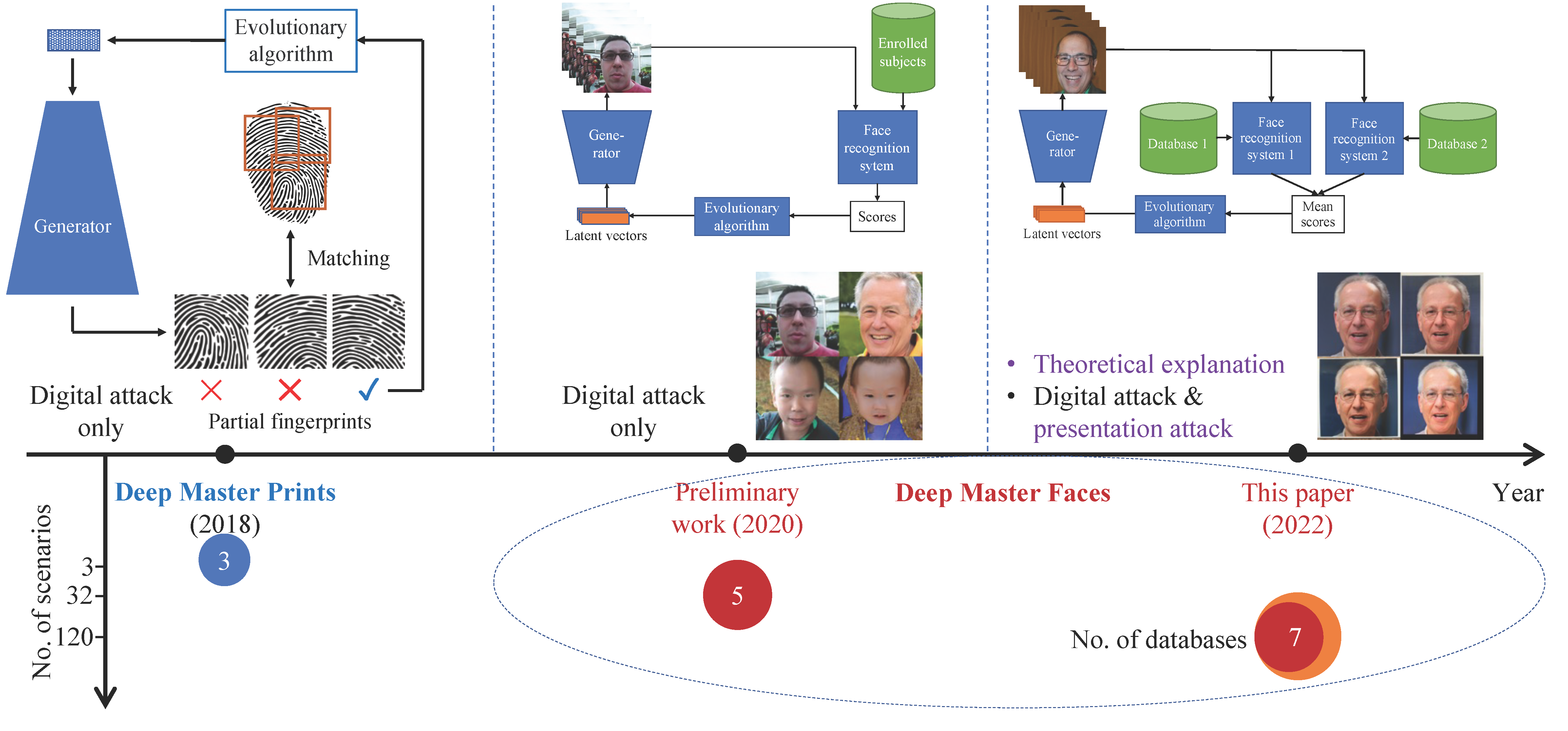2022.10.20
Master Face Attacks on Face Recognition Systems
SOKENDAI Publication Grant for Research Papers program year: 2022
NGUYEN Hong Huy
journal: IEEE Transactions on Biometrics, Behavior, and Identity Science publish year: 2022
DOI: 10.1109/TBIOM.2022.3166206

This figure visualizes the development of research on master biometrics attacks. The first stage was partial master fingerprints, as proposed by Bontrager et al. Next stage was our preliminary work on master faces, which was published in IJCB 2020. The current stage (this work) builds upon previous work and introduces extensions in the algorithm, analysis, visualization, and test scenarios.
Face authentication is now widely used, especially on mobile devices, rather than a personal identification number or an unlock pattern due to its convenience. It has thus become a tempting target for attackers using a presentation (physical) attack. Traditional presentation attacks use facial images or videos of the victim. Our previous work has proven the existence of master faces, i.e., faces that match multiple people' faces by face recognition systems, and their existence extends the ability of presentation attacks. In this work, we report an extensive study on the latent variable evolution algorithm used to generate master faces. On the basis of analysis, we hypothesize that master faces originate in dense areas in the embedding spaces of face recognition systems, caused by imbalanced training data and not well-designed loss functions used for training. Last but not least, simulated presentation attacks using generated master faces generally preserved the false matching ability of their original digital forms, thus demonstrating that the existence of master faces poses an actual threat. To mitigate master face attacks, we suggest combining a face recognition system with a well-designed objective function trained on a large balanced database with a fake image detector.
Bibliographic information of awarded paper
- Title: Master Face Attacks on Face Recognition Systems,.
- Authors: Huy Hong Nguyen, Sébastien Marcel, Junichi Yamagishi and Isao Echizen
- Journal Title: IEEE Transactions on Biometrics, Behavior, and Identity Science vol. 4, no. 3, pp. 398-411
- Publication Year: 2022
- DOI: 10.1109/TBIOM.2022.3166206.
Department of Informatics NGUYEN Hong Huy
NGUYEN Hong Huy (Huy H. Nguyen) received the BS. degree (honors program) from VNUHCM - University of Science, Vietnam, in 2013, and the Ph.D. degree from The Graduate University for Advanced Studies, SOKENDAI, in alliance with the National Institute of Informatics, Japan, in 2022. He is currently a postdoctoral researcher at the National Institute of Informatics, Tokyo, Japan. His research interests include security and privacy in biometrics and machine
